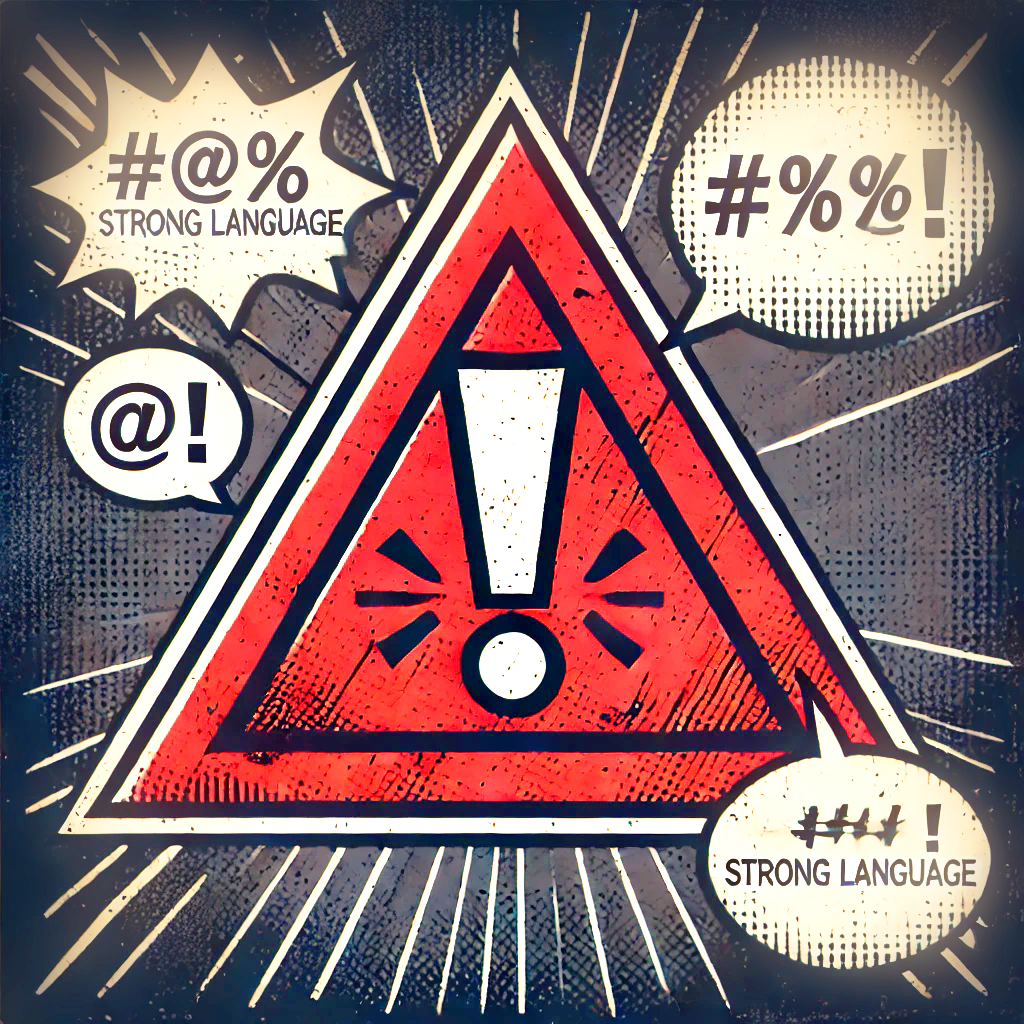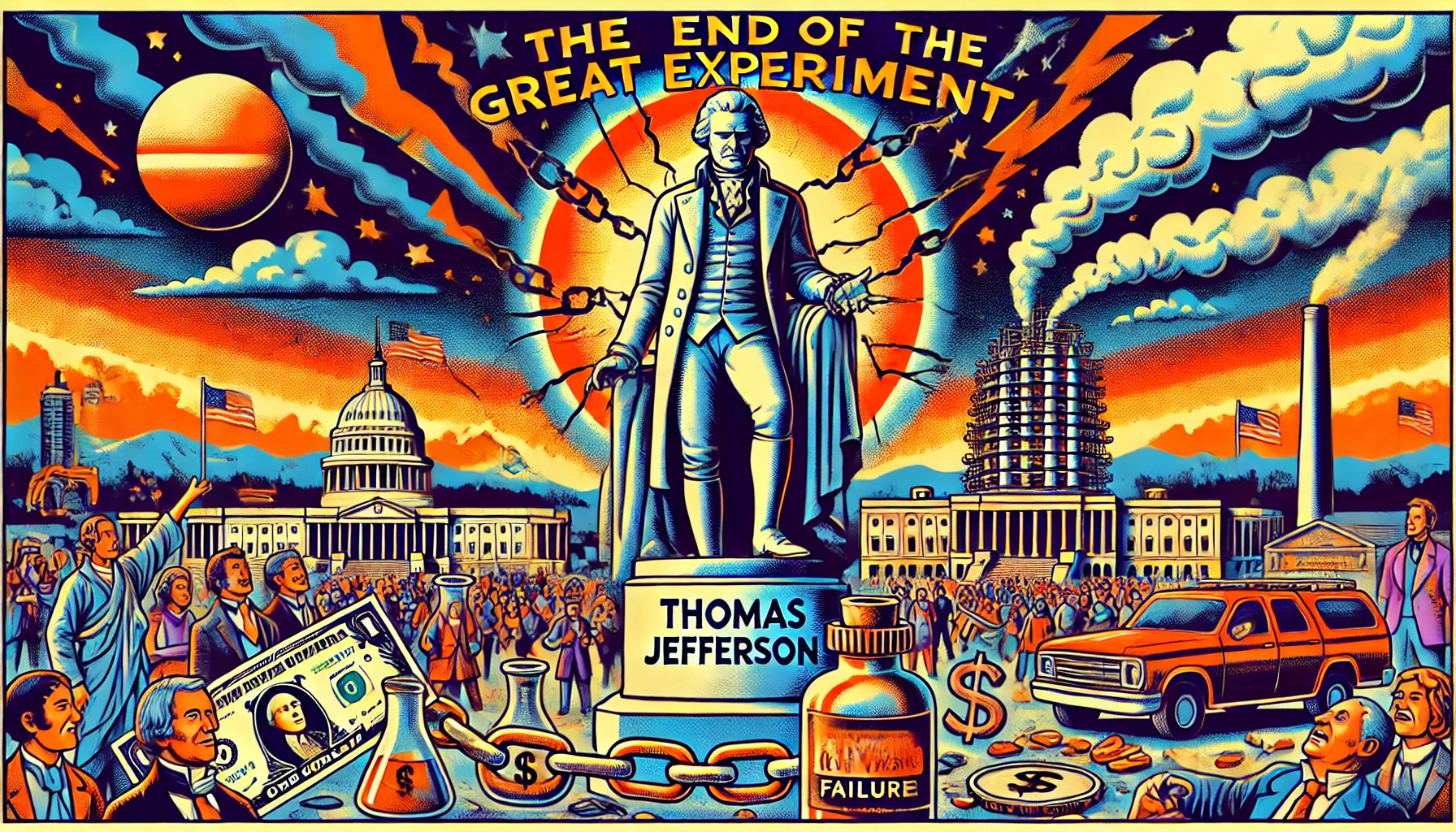Why It’s Time to Move On
Thomas Jefferson famously referred to the American republic as the “Great Experiment,” a bold venture in self-governance and democratic ideals. It was a daring proposition: that a nation could be ruled not by monarchs or tyrants, but by the collective will of its people. Yet, as we peer through the lens of contemporary reality, it becomes painfully clear that this grand experiment has run its course. The time has come to acknowledge its failures and move on to something more suited to the complexities of the modern world.
Jefferson’s vision was rooted in the Enlightenment ideals of liberty, equality, and the pursuit of happiness. However, the cracks in this foundation were apparent even at the inception. The republic was built on the backs of enslaved people, with liberty and equality as privileges reserved for white landowners. This hypocrisy has festered for centuries, manifesting in systemic racism and social inequality that persist to this day. The notion that the United States was ever a true beacon of freedom is a myth, one that we’ve clung to with a naive fervor.
The so-called experiment also hinged on the idea of an informed and engaged electorate. Jefferson and his contemporaries envisioned a populace capable of rational thought and civic participation. Instead, we find ourselves in an era dominated by misinformation, where political discourse has devolved into shouting matches and tribalism. The electorate is neither informed nor engaged; it is manipulated by a media landscape that prioritizes sensationalism over substance, and by politicians who pander to the lowest common denominator.
Moreover, the structures of governance envisioned by the Founding Fathers are woefully inadequate for the challenges of the 21st century. The Electoral College, a relic designed to placate slave states, now serves to undermine the democratic process. Gerrymandering and voter suppression have further eroded the legitimacy of our elections. The checks and balances meant to prevent tyranny have instead created gridlock, with a hyper-partisan Congress more interested in scoring political points than in governance.
The economic dimension of the Great Experiment has also failed spectacularly. The promise of the American Dream has been reduced to a cruel joke for many. Income inequality is at historic highs, with a staggering wealth gap that rivals that of the Gilded Age. The middle class, once the backbone of American prosperity, is shrinking, while the working poor struggle to make ends meet. This economic disparity is not an aberration but a feature of a system designed to benefit the wealthy and powerful.
Let us not forget the environmental catastrophe that our experiment has facilitated. The pursuit of unfettered economic growth has come at the expense of the planet itself. Climate change, pollution, and resource depletion are direct consequences of a system that values profit over sustainability. The very survival of our species is now in question, yet our political institutions remain paralyzed, incapable of taking the necessary bold actions.
Internationally, the experiment has morphed into an imperialistic endeavor, with the United States imposing its will through military might and economic coercion. The ideal of leading by example has been replaced by a policy of might makes right. This has led to endless wars, a bloated military-industrial complex, and a tarnished global reputation.
It is time to move on from the Great Experiment. Clinging to Jeffersonian ideals in the face of overwhelming evidence of their inadequacy is not only foolish but dangerous. We need to reimagine our governance, our economy, and our societal values. This means embracing a system that truly reflects the diverse, interconnected world we live in. It means prioritizing sustainability over growth, equity over profit, and genuine democracy over hollow rituals.
The Great Experiment, as noble as it might have seemed, is a failed venture. The foundations laid by Jefferson and his peers are inadequate for the realities of the present day. It is time to acknowledge this failure and move on to create a system that can address the profound challenges we face. The future demands nothing less.
Owner of BaedonWebZine and the mastermind behind its content. A versatile individual hailing from The Great American Desert, Henry carries the enduring influences of his upbringing. He wears multiple hats as a writer, graphics manipulator, devoted father, and dedicated geek. His days are spent exploring the world with a relentless quest for understanding, bringing a unique blend of insight and creativity to the site.




Leave a Reply